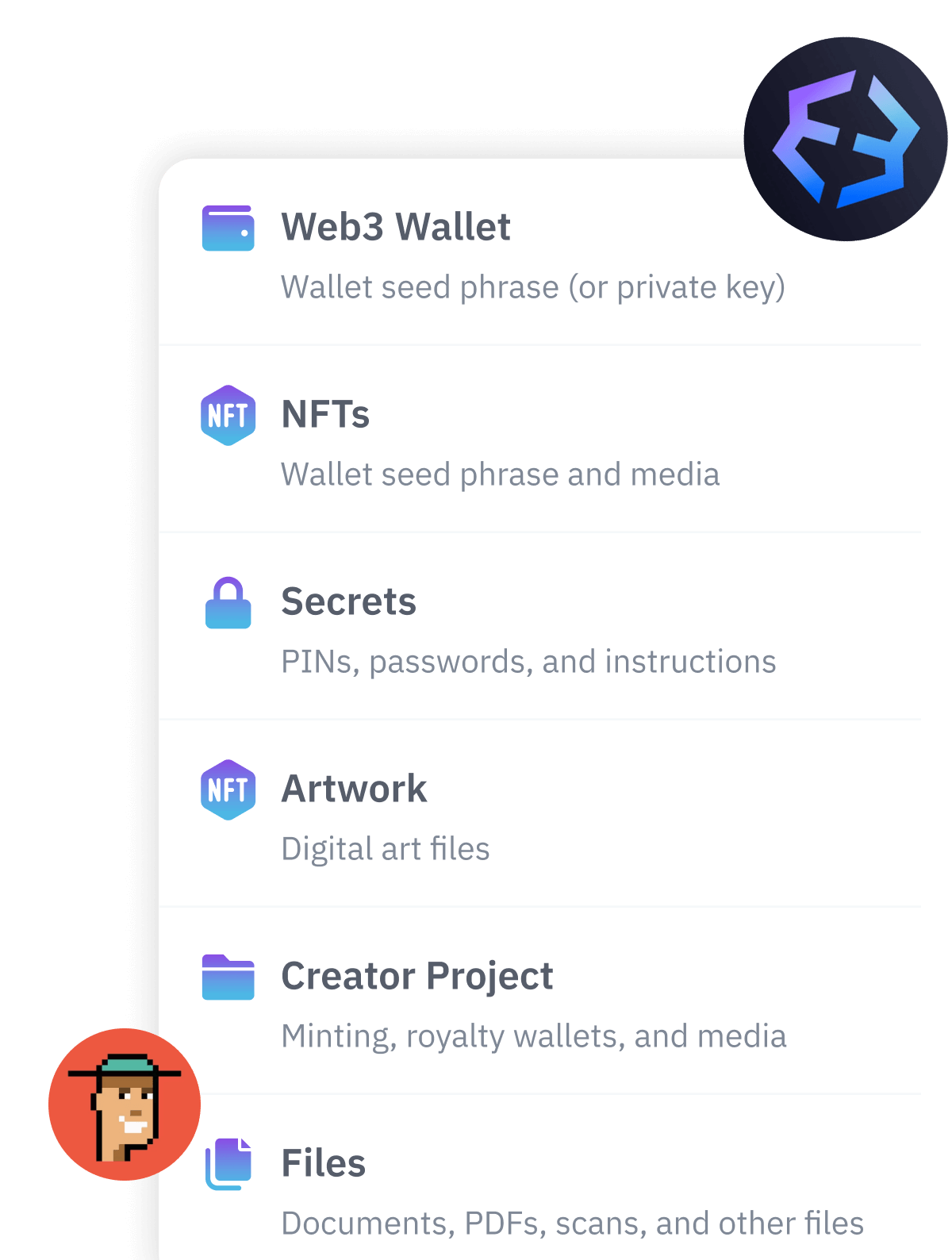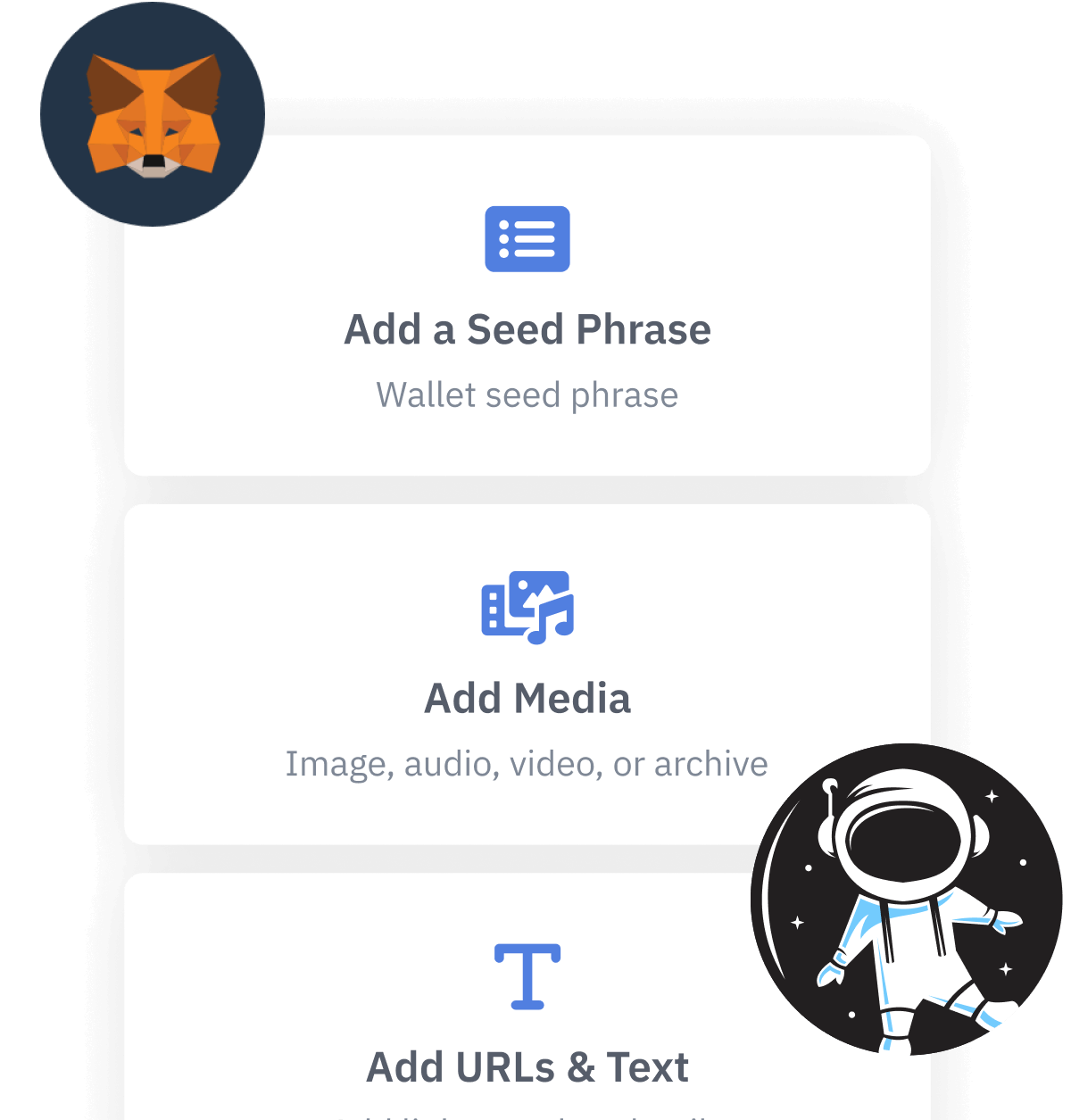
Contents
- Intro
- I. HODLpac for Donors
- II. Crypto for Congress
- 1. What are cryptocurrencies and blockchain?
- 2. Why it makes sense to accept crypto donations
- 3. Step by step guide on how to set up crypto donations
- 4. FEC FAQ for Campaign committees
- 5. A small Bitcoin donation to get the ball rolling
- About the Chamber of Digital Commerce
Crypto Political Campaign Donations for Congress
HODLpac and Crypto for Congress are two initiatives aimed at expanding the use and adoption of digital assets among Congressional candidates, elected leaders, and engaged citizens. Read on to learn how to accept crypto donations for your congressional fundraising campaign.
Recent discussions in Congress regarding the Infrastructure bill have shone a light on just how much cryptocurrency affects ordinary people. This article describes how current and future members of Congress, elected leaders, and engaged citizens can learn more about crypto, and in particular how to fundraise with crypto donations.
Intro
An interesting and recent change in voter constituencies is that some groups today are cash poor but crypto rich. Having a visible way to accept campaign donations in crypto can involve these constituencies in new and continued political engagement.
Empowering supporters to make contributions in cryptocurrency signals to those who hold it that your campaign is open-minded, forward-thinking, and up to speed on innovation.
Blockchain donations are cheaper - traditional payment processors charge 2% - 4% plus associated fees. (Based on 2018 mid-term numbers, $3.7B donated by individuals would have cost more than $74,000,000 in fees to process.) Blockchain payments also incur fees, but these are 75% less than fees paid to traditional providers.
Timely technical awareness and leadership are critical. Whilst many people are still learning about the positive social impacts of blockchain-based solutions (e.g., eliminating unfair and unethical practices like redlining and other forms of financial discrimination), China and the European Union have advanced discussions underway to position themselves as global leaders in this space.
Establishing a mechanism to accept donated cryptocurrency is one way to demonstrate a commitment to innovation and to show support for cryptocurrency's growing impact on the economy, national security, and American leadership.
The National Republican Campaign Committee (NRCC) has already signaled that it will accept crypto donations. The NRCC is chaired by Rep. Tom Emmer (R-Minn.), who has led the Congressional Blockchain Caucus. Other members of Congress such as Rep. Darren Soto (D - Florida), who co-chairs the Congressional Blockchain Caucus, and his campaign have already set up channels to receive donations in crypto.
There are two separate initiatives, both started in 2020 to enable members of congress to receive donations from supporters in cryptocurrency - one that is donor centric and focused on galvanizing the crypto community to donate to political candidates in fiat (US dollars), HODLpac, and the second is campaign-centric, Crypto For Congress is an education-focused initiative that enables campaigns to receive donations in cryptocurrency.
I. HODLpac for Donors
HODLpac is a political action committee (PAC) - i.e. an organization that pools money and donates it to candidates for public office.
HODLpac is registered with the Federal Election Commission (FEC) but, unlike most PACs, it is community-governed: those who donate will decide who to support.
Their mission is to support candidates for the House of Representatives and Senate whose policies would promote the development of cryptocurrencies and the decentralized economy in the United States.
HODLpac is a community-governed PAC. In 2020, members decided who we supported with funds raised to the PAC by voting with HODLvotes - their governance token.
For 2022, they're building something new.HODLpac is a new kind of PAC.
For the 2022 election cycle, HODLpac will be unveiling a quadratic funding application that will amplify the crypto community's political giving and lay the groundwork for HODLpac to become a decentralized autonomous organization (DAO).
Starting in late 2021, HODLpac will launch an application that allows members of the crypto community to donate directly to any candidate they want to support during live "Donation Rounds."
During HODLpac's Donation Rounds, donations made by individuals to candidates will be matched according to a quadratic funding algorithm. Funds donated directly to HODLpac will act as the matching pool. Like Gitcoin Grants but for politics.
When individuals make donations during Donation Rounds, three things happen:
- These donations are counted towards one's individual contribution limits to each candidate. The Federal Elections Committee (FEC) caps donations from individuals to candidates at $2,900 per election. Primary elections, general elections, and runoff elections (when applicable) each count as different elections for FEC contribution limits. HODLpac will have active Donation Rounds during the primaries and general elections (and runoffs if applicable).
- Donations from individuals are matched by HODLpac. In conjunction with providing an easy way for individuals to donate directly to candidates, HODLpac itself is also raising funds from the crypto community. Funds raised to HODLpac act as the matching pool that amplifies donations by individuals to candidates they want to support. Check out wtfisqf.com for more detail on the benefits of quadratic funding.
- Individuals earn HODLvote tokens, HODLpac's governance token. Participants in HODLpac Donation Rounds will earn HODLvote tokens, which will be used for HODLpac community governance. See the Community Governance page for more detail.
Bigger Impact. HODLpac can get more money to candidates that deserve it by using this structure. HODLpac combines "earmarked donations" with a quadratic funding matching pool to vastly increase the amount of money we're able to raise for candidates. Candidates can receive up to $2,900 from each individual donor per election cycle + the $5,000 max contribution from HODLpac per election cycle (rather than only $5,000 from HODLpac itself).
Avoid Partisanship. HODLpac is a nonpartisan PAC, having donated to 5 Republicans and 5 Democrats in 2020 as decided by community vote. Nonetheless, something that they observed during the 2020 election cycle was that most community members voted along party lines when helping decide who HODLpac should support. HODLpac's new quadratic funding design avoids this potential source of friction by allowing individuals to donate only to candidates they are willing to support (while having those funds amplified by the matching pool). HODLpac will also have separate matching pools for each political party, giving matching pool donors the ability to support one party over another.
Progressive Decentralization. Gitcoin DAO has laid out a model road map for HODLpac to follow for its own progressive decentralization. Donors to HODLpac's matching pool and participants in HODLpac donation rounds will be airdropped governance tokens to steer the direction of the organization, e.g. setting matching pool amounts in future donation rounds or allocating independent expenditure funds from the Super PAC.
II. Crypto for Congress
Now is the moment for all Members of Congress to learn about and embrace cryptocurrencies and blockchain technology, and the best way to do that is to set up a digital wallet and get started on the blockchain journey. Many other nations like China, Japan, Singapore, and Switzerland have rapidly embraced blockchain technology and created robust national plans to be global leaders in this area. The United States is falling behind in technological innovation, and this is not a risk we should be willing to take."
Perianne Boring, Founder and President of the Chamber of Digital Commerce.
The Digital Chamber of Commerce has created an in-depth, step-by-step guide for how members of Congress can accept crypto donations, and you can access this resource now at cryptoforcongress.com.
The Crypto for Congress initiative is supported by members of the Congressional Blockchain Caucus, including pro-cryptocurrency Representatives Darren Soto and Tom Emmer.
The light bulb moment is now. Crypto for Congress brings an opportunity for our entire Congressional community to join this generational shift in finance and technology. By embracing the digital asset movement, we have an opportunity to take a significant step forward to ensure America's leadership position in the future of the global economy."
U.S. Rep. Tom Emmer
Crypto for Congress is sponsored by a consortium of leading companies in the digital asset industry, including Anchorage, Armanino, BitPay, BlockFi, Bloq, CMT Digital, Circle, Civic, Core Scientific, eToro, Flipside Crypto, Hedera Hashgraph, Medici Ventures, Messari and Paxos.
This resource covers the following:
- What are crypto and blockchain?
- Why it makes sense to accept crypto donations.
- Step by step guide on how to set up crypto donations.
- FEC FAQ for Campaign committees.
- A small Bitcoin donation to get the ball rolling.
As lawmakers, it's our duty to ensure the United States leads in blockchain technology. Understanding how this technology works at a hands-on level is an important step we must take to promote innovation and maximize the potential of cryptocurrencies for the U.S. economy."
U.S. Rep. Darren Soto

1. What are cryptocurrencies and blockchain?
Cryptocurrency is a set of technologies used to store and exchange assets digitally in the form of coins, or tokens. Cryptocurrency's marketplace mechanics are decentralized (unlike emerging centralized digital currencies), and its security is supported by cryptography (encryption), which allows it to be both secure and anonymous. Although Bitcoin is the most well-known cryptocurrency in the world, with the largest market capitalization, there are now thousands of cryptocurrencies listed on the price-tracking website coinmarketcap.com. Cryptocurrencies other than Bitcoin are referred to as "Altcoins."
Cryptocurrencies are decentralized, digital money, traded on networks called blockchains.
Bitcoin is the most well-known cryptocurrency, but there are thousands of "alt coins."
Validation of trade transactions is performed by crypto "miners," who are paid a fee in crypto for their efforts.
Large institutions are now investing sizeable sums as part of their investment portfolios.
Some creative investment vehicles allow investors to purchase products that reflect cryptocurrency's value without the consumer actually owning their own cryptocurrency.
Cryptocurrency value is often volatile. Education and risk tolerance are key for crypto investors.
You could think of a blockchain as a global, publicly transparent property in the form of a shared ledger (database), where lots of digital coins are assigned to people, and locked by their individual encryption keys. People can prove their ownership or confirm a transfer of their coins by initiating a transfer with their unique key (private key).
Why would such a strange-sounding system of exchange come about? Cryptocurrencies were specifically designed to exist outside of central authority or government control. They achieve this independence due to the decentralized nature of blockchains. Anyone can view, transact with, or even have their computer operationally participate in a public blockchain network, which has made it arguably the most significant disruptive technology since the birth of the internet.
A public blockchain network runs on many different computers at the same time (it is "distributed"). It stores transactions publicly and permanently as they occur. Because there is no single person or entity in charge of a distributed network, there is no one to regulate, control, or shut it down. Anyone can buy, sell, or send cryptocurrency to others directly, without the aid of any bank or other third party. But just because every transaction on a blockchain is visible for everyone to see doesn't mean you'll know who is sending money to whom - the blockchain record shows the wallet addresses used in a given transaction, not who controls those wallets.
When a new transaction is initiated, multiple "miners" (independent participants who run computer "nodes") perform a technical verification of that transaction and receive a cryptocurrency transaction fee for doing so. Each verification is also validated by other nodes, achieving "consensus," and then transactions are permanently added to the public blockchain ledger. The chances for fraud are minimized - some say eliminated - by the fact that it would be very hard to get thousands of miners in multiple countries to conspire to perform false validations. Miners are financially incentivized to keep the blockchain honest and accurate.
2. Why it makes sense to accept crypto donations
Accepting cryptocurrency contributions is an additional way for campaigns to engage key demographics, spur political engagement, and reach an untapped source of contributions. The 2018 election cycle saw $5.7 billion in political contributions, two-thirds of which came from individual contributions - that's $3.7 billion from individual donors. A large part of this growth can be attributed to the rise of online donation processors and the ability to reach new audiences over the internet.
Increase Political Engagement with Key Demographics. 49% of Generation Z and 41% of millennials say they plan to donate to a political campaign in 2020. To include younger generations in the political process, you have to speak their language. Just as campaigns use social media to target different demographics, campaigns rely on different payment methods to reach different communities. Imagine if you told direct mail donors they had to give only by credit card, or donors over the phone they had to go to a website. If donors are not able to give and engage in the way they prefer, they likely won't.
Allowing supporters to make contributions in cryptocurrency signals to those who hold it that your campaign is open-minded, forward-thinking, and up to speed on innovation.
Blockchains are Cheaper, Faster, and More Secure. Because new and more competitive transaction processors in the cryptocurrency space charge up to 75% less than traditional processors, campaigns that accept cryptocurrency can keep more of their contributions, receive them faster, and process them more securely.
Demonstrate Leadership in Innovation. Blockchain technology offers enormous possibilities for businesses, government, and consumers. Its unique advantages offer extraordinary economic growth and a safer, more secure internet. The ability to increase cost-efficiency and promote transparency is revolutionizing the processes through which companies conduct business. For example, blockchain technology can provide services and access to those that currently do not have them – the unbanked and underbanked – through faster and cheaper remittances and digital identity solutions. Its potential is also being felt in industries beyond financial services, including healthcare, supply chain management, energy, transportation, insurance, and many others.
In order for the United States to maintain its technological preeminence globally, we must be at the forefront of advanced technologies. Blockchain is the financial infrastructure of the new digital economy. China and the European Union - among many others - understand this and have strategic plans to be global leaders in the development of blockchain technologies.
Accepting cryptocurrencies is a clear demonstration of a commitment to innovation and its impact on the economy, national security, and American leadership.
The Chamber of Digital Commerce has created a toolkit to help campaigns get started with crypto and to leverage blockchain technology to expand participation in the political process. You can download it here.
4. FEC FAQ for Campaign committees
The Chamber of Digital Commerce is committed to providing education about campaign finance best practices for accepting and managing cryptocurrency contributions. Below are some frequently asked questions that campaigns may encounter - click here to read the FEC FAQ, which covers the following:
- What is the FEC Guidance on Reporting Cryptocurrency Contributions?
- What Information Do Committees Need to Collect from Contributors?
- What are the Legal Limits / Caps for Cryptocurrency Contributions?
- Do Committees Need to Record Exchange Fees?
- How Do Committees Handle Fraud Protection?
- What If a Committee Needs to Refund an Excess or Unwanted Contribution? How are Refunds Processed?
- Are Committees Required to Liquidate (Sell) Contributed Cryptocurrencies Immediately? Should Committees Hold or Liquidate (Sell) Their Cryptocurrency Contributions?
- How Should a Committee Report Cryptocurrency Contributions?
- Can a Committee Spend Cryptocurrency on Operations?
- How Can Committees Be Sure They Are Not Breaching Campaign Finance Limits with Cryptocurrency Price Fluctuations?
- How Can a Committee Determine the Value of a Cryptocurrency Contribution?
- Do Committees Need to Report Increase in Value for Tax Purposes on Cryptocurrency Holdings?
5. A small Bitcoin donation to get the ball rolling
In October 2020, all Members of the United States Congress received a campaign contribution in bitcoin as part of a groundbreaking initiative called "Crypto for Congress." This milestone marked the first time that every Member of Congress had the opportunity to interact with and fully realize the potential of blockchain technology.
As with all technologies, the deepest form of learning happens when someone uses it for themselves. In addition to the $50 bitcoin contribution from the Chamber of Digital Commerce PAC, the Chamber of Digital Commerce is providing extensive public online educational training, a toolkit, and resources to Members across all parties to help them engage directly in the cryptocurrency ecosystem.
Crypto for Congress is a pivotal inflection point, akin to the time Members of Congress received their first email or sent their first Tweet. It will foster a deeper understanding of this technology's vast potential, from enabling greater participation in the political process to revolutionizing every industry in our economy.
About the Chamber of Digital Commerce
The Chamber is the world's largest blockchain trade association. Our mission is to promote the acceptance and use of digital assets and blockchain technology, and we are supported by a diverse membership that represents the blockchain industry globally. Through education, advocacy, and close coordination with policymakers, regulatory agencies, and industry across various jurisdictions, our goal is to develop a pro-growth legal environment that fosters innovation, job creation, and investment. Visit www.digitalchamber.org to learn more.
Contact:
Chamber of Digital Commerce 1667 K Street, NW, Suite 640 Washington, DC 20006
info@digitalchamber.org
202.765.3105
Crypto Political Campaign Donations for Congress
HODLpac and Crypto for Congress are two initiatives aimed at expanding the use and adoption of digital assets among Congressional candidates, elected leaders, and engaged citizens. Read on to learn how to accept crypto donations for your congressional fundraising campaign.

Digital Chamber Of Commerce
The Chamber of Digital Commerce is the world's leading #blockchain trade association. Host of Parallel http://parallelsummit.io

Wasim Ahmad
Wasim Ahmad is a serial entrepreneur and an advisor in the fields of AI, blockchain, cryptocurrency, and encryption solutions. At Vault12, the pioneer of crypto inheritance, he led private and public fundraising efforts and focuses today on expanding the Vault12 ecosystem. In addition, he is a producer of the upcoming movie 'The Bitcoin Executor'.
His crypto experience began with AlphaPoint, where he worked with the founding team to launch the world's first crypto trading exchanges. Previously he was a founding member of Voltage Security, a spinout from Stanford University, that launched Identity-Based Encryption (IBE), a breakthrough in Public Key Cryptography, and pioneered the use of sophisticated data encryption to protect sensitive data across the world's payment systems.
He has also been very involved with regulatory initiatives in both the US and the UK, providing feedback to the SEC and FCA respectively pushing for expanded momentum for innovation and startups within the regulatory frameworks of both countries.
Wasim served on the board of non-profit, StartOut, and is a Seedcamp and WeWork Labs global mentor.
Wasim graduated with a Bachelor of Science in Physics and French from the University of Sussex.

Vault12
Vault12 is the pioneer in crypto inheritance and backup. The company was founded in 2015 to provide a way to enable everyday crypto customers to add a legacy contact to their cry[to wallets. The Vault12 Guard solution is blockchain-independent, runs on any mobile device with biometric security, and is available in Apple and Google app stores.
You will lose your Bitcoin and other crypto when you die...
...unless you set up Crypto Inheritance today.
It's simple — if you don't worry about crypto inheritance, nobody else will — not your software or hardware wallet vendors, not your exchanges, and not your wealth managers. So it's up to you to think about how to protect the generational wealth you have created, and reduce the risks around passing that crypto wealth on to your family and heirs. What are the challenges with crypto inheritance?
- Crypto Wallets are difficult to use and do not offer crypto inheritance management. In fact, most of them tell you to write down your seed phrase on a piece of paper, which is practically useless.
- Some people back up their wallet seed phrases or private keys on paper, local devices like hardware wallets or USBs, or in the cloud. All of these options have severe drawbacks that range from hacking to accidental loss to disrupted cloud services.
- Software wallets operate on specific blockchains, yet your crypto assets span multiple blockchains. For inheritance to work, you must be able to manage inheritance across every blockchain — now and forever.
DISCLAIMER: Vault12 is NOT a financial institution, cryptocurrency exchange, wallet provider, or custodian. We do NOT hold, transfer, manage, or have access to any user funds, tokens, cryptocurrencies, or digital assets. Vault12 is exclusively a non-custodial information security and backup tool that helps users securely store their own wallet seed phrases and private keys. We provide no financial services, asset management, transaction capabilities, or investment advice. Users maintain complete control of their assets at all times.
Pioneering Crypto Inheritance: Secure Quantum-safe Storage and Backup
Vault12 is the pioneer in Crypto Inheritance, offering a simple yet powerful way to designate a legacy contact and pass on your crypto assets—like Bitcoin (BTC), Ethereum (ETH) and Solana (SOL) —to future generations. Built for everyday users yet robust enough for the most seasoned crypto enthusiasts, Vault12 Guard ensures your wallet seed phrases and private keys are preserved in a fully self-sovereign manner, across all Blockchains.
At the heart of Vault12 Guard is quantum-resistant cryptography and a decentralized, peer-to-peer network of trusted Guardians. Your critical information is never stored in the cloud, on Vault12 servers, or even on local devices—dramatically reducing the risk of a single point of failure. By fusing a powerful software layer with the Secure Element of iOS devices (Secure Enclave) and Google devices (Strongbox), Vault12 Guard locks down your private keys against present and future threats.
Our innovative approach harnesses social recovery, enabling you to appoint one or more trusted individuals or mobile devices as Guardians. These Guardians collectively safeguard your protected seed phrases in a decentralized digital Vault—so there’s no need for constant lawyer updates or bulky paperwork. Should the unexpected happen, your chosen legacy contact can seamlessly inherit your crypto assets without compromising your privacy or security.
Preserve your digital wealth for generations to come with Vault12 Guard—the simplest, most secure way to manage crypto inheritance and backup.
Take the first step and back up your crypto wallets.
Designed to be used alongside traditional hardware and software crypto wallets, Vault12 Guard helps cryptocurrency owners back up their wallet seed phrases and private keys (assets) without storing anything in the cloud, or in any single location. This increases protection and decreases the risk of loss.
The first step in crypto Inheritance Management is making sure you have an up-to-date backup.
The Vault12 Guard app enables secure decentralized backups, and provides inheritance for all your seed phrases and private keys across any blockchain, including Bitcoin, Ethereum, and others, and for any crypto wallet.
Note: For anyone unfamiliar with cryptocurrencies, Vault12 refers to wallet seed phrases and private keys as assets, crypto assets, and digital assets. The Vault12 Guard app includes a software wallet that works alongside your Digital Vault. The primary purpose of this is to guard your Bitcoin (BTC) and Ethereum (ETH) wallet seed phrases, private keys, and other essential data, now and for future generations.












